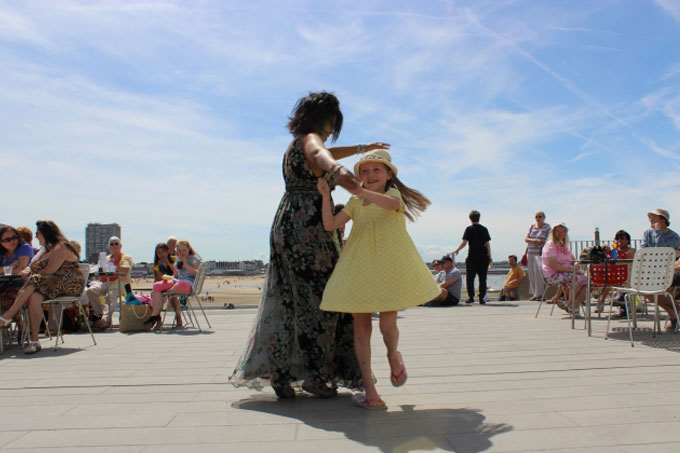In light of both the interim evaluations of the 2017 Hull UK City of Culture and new research delivered by the Culture Kent Research Programme, Dr Julie Scott and Dr Karen Thomas discuss the importance of partnership working to building cultural destinations.
December 2017 brought to a close Hull’s triumphant year as UK City of Culture, and saw the announcement of Coventry as the next UK City of Culture for 2021. Coventry will be hoping to emulate Hull’s success.
Indications from interim evaluations of the 2017 City of Culture highlight spectacular achievements in terms of broadening participation in culture and the arts, raising local morale and generating a renewed sense of place and pride in the city, in addition to fuelling a considerable economic impact and boost to the city’s visitor economy. Learning the lessons of its success will be key to Hull City Council’s future plans for embedding the legacy of the City of Culture with a £250m cultural strategy, which has the long term aim of making Hull a world-class cultural destination.
Chief amongst these lessons is the importance of partnerships, and the story of these partnerships was told in a recent exhibition that took place in Hull. Tell the World provided a showcase for the organisations who, in the words of the organisers, ‘helped make our year of culture possible’, bringing together 80 partners to share their stories of the year and their plans for the future.
New research findings from the University’s Tourism and Events Research Hub and Visit Kent carried out for the Culture Kent Project – an initiative funded under the Cultural Destinations Programme – suggest that sustaining effective partnerships will be a critical challenge for the success of Hull’s future ambitions as a cultural destination.
According to our findings, organisations adopt different styles of partnership working according to specific kinds of conditions and goals – for accessing funding, networking, sharing and growing resources. Building cultural destinations over time requires sustained collaboration across tourism, arts and cultural sectors, in order to create the kinds of joined-up destination experiences cultural tourists are seeking – but this in turn depends on an effective enabling environment, based on an understanding of the factors influencing the collaborative preferences of organisations.
The research examined influences in both the external environment and internal organisational structures that converge to shape perceptions of the benefits and barriers to cross-sectoral working, and drive or inhibit particular patterns of collaboration in response to opportunities and circumstances.
The Collaborative Preferences Model developed by the research identified internal factors such as governance, mission, lifecycle and place relationships, and external factors such as the institutional landscape, social trends and networking bodies.
The successes of the Hull City of Culture and the Cultural Destinations Programme in Kent show the effectiveness of collaboration when the right kind of enabling environment is in place. The time is now right to build the longer-term structures to extend cross-sectoral working between tourism, culture and the arts beyond the time-limited framework of project cycles.
You can read the research findings in full here.
Dr Julie Scott and Dr Karen Thomas, from the Tourism and Events Research Hub, in the School of Human and Life Sciences, have worked in partnership with Visit Kent to deliver the Culture Kent Research Programme. Culture Kent was a three-year project funded by Arts Council England and VisitEngland, as part of the Cultural Destinations Programme and led by Turner Contemporary.
Image: Tango on the Terrace, courtesy of Turner Contemporary, Margate. Photo Jess Limbrick.
 Expert comment
Expert comment Jeanette Earl
Jeanette Earl 2882
2882


